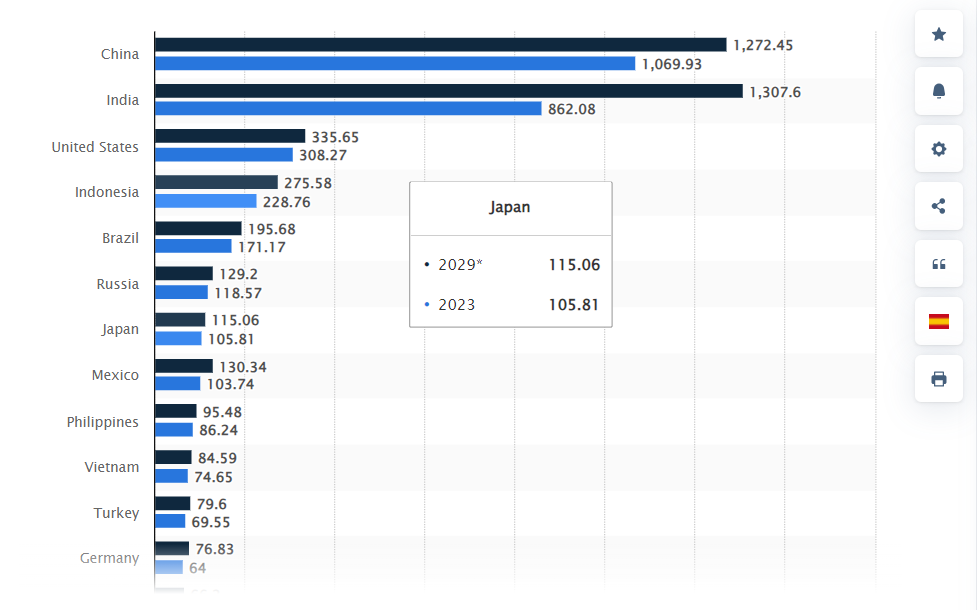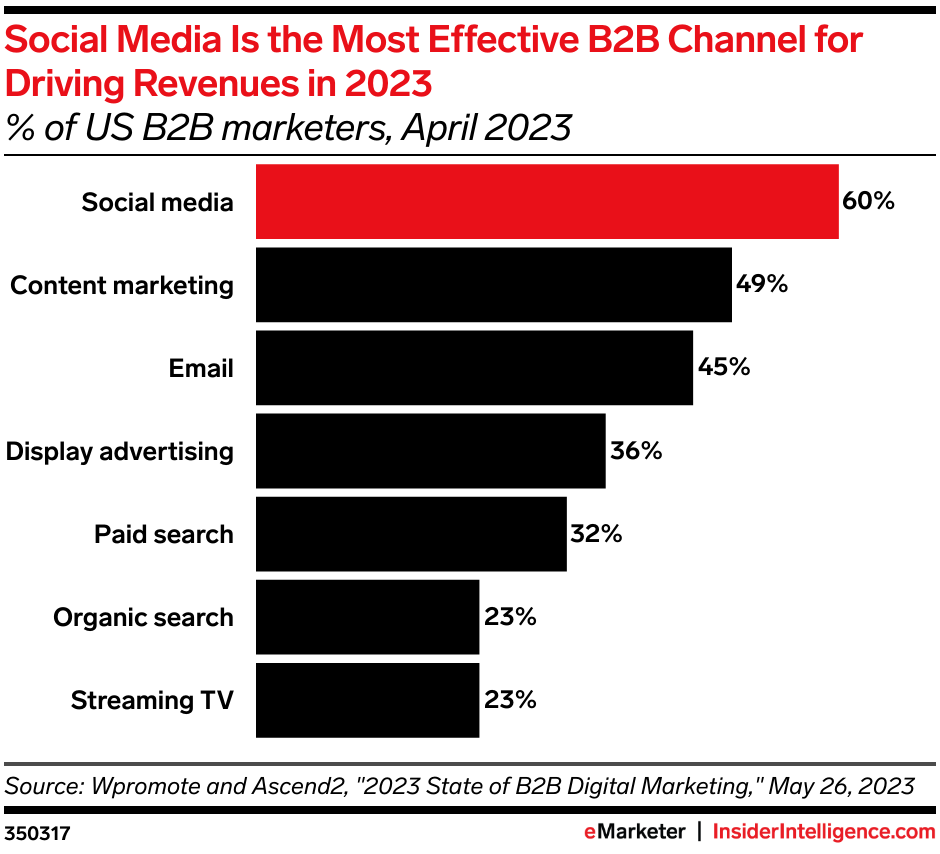Social media, this term is not an unknown fact or a term for many out there, especially in todays date and time. Today every other person who are into different work industries or domain from corporate sector to legal professionals all are into the world of social media. Today social media is playing a significant role in modern life affecting how people communicate, connect and access information.
According to a statista report on social media users on selected networks from 2023-2029, is shown below.


Social media today used at its best brings out the best in the most suitable ways. It also brings in a lot of success, since it is the medium for direct contact with the targeted audience. In most of the domains if we look at social media will be the first thing that comes to mind when we need to expand our connections, brings in more audiences and so.
How businesses are benefitted with social media
Social media is not just relevant to only for the content creators but it goes beyond it as well. Today business are doing the utmost to reach their targeted audience and also make to increase the publicity. McKinsey highlights social media’s role in helping businesses respond to customers, but only half meet response time expectations. Quickly addressing complaints boosts customer satisfaction and experience.
Lets explore some of the benefits of social media for businesses.
1. Increased Brand Awareness
Social media platforms provide a vast audience base, allowing businesses to increase visibility and reach potential customers globally. By regularly sharing engaging content, brands can effectively communicate their value propositions and solutions to customer needs, thereby enhancing brand recognition.
This brand reach is not only for the customers but focused also towards the media platforms provide B2B companies with the ability to connect with a vast audience. By maintaining a strong presence on platforms like LinkedIn, businesses can increase visibility, attract new clients, and establish themselves as industry leaders.
2. Networking opportunities and generating leads
Not only making connections with the customers but also helps in networking and making connections with businesses and influencers. Social media allows for advanced targeting capabilities, enabling businesses to reach their ideal audience effectively. By sharing valuable content, B2B companies can attract qualified leads and guide them toward conversion.
As per a report, it says that Social media is the most effective revenue-driving channel, with 60% of US B2B marketers naming it their top choice in 2023.
Source: social media for B2B
3. Build authentic brand identity
A well-crafted social media presence allows B2B brands to project their identity authentically. This helps in establishing a strong brand voice that resonates with target audiences, making the brand more relatable and trustworthy.
4. Showcasing thought leadership
B2B companies can use social media to share insightful content, industry trends, and expert opinions, positioning themselves as thought leaders within their sectors. This builds credibility and attracts potential clients who seek expertise in their field.
How AI is becoming a game changer in social media
As when AI is revolving around, social media is not set back. The global artificial intelligence in social media market size was valued at $992.7 million in 2021, and is projected to reach $12 billion by 2031, growing at a CAGR of 28.7% from 2022 to 2031.
AI plays a multifaceted role in social media platforms like Instagram, WhatsApp, LinkedIn, and YouTube, enhancing user experience, optimizing content creation, and improving engagement.
Moreover integrating AI in social media platforms is a strategic move that can revolutionize how companies engage with their audience and market. AI helps businesses to automate and improve multiple aspects of their social media presence, such as content moderation and customer support with the help of chatbot, and a streamline targetting of the audiences. In addition to this AI empowers businesses to provide highly personalized content recommendations creating a tailored experience that enhances user engagement and boost conversions.
Lets look into some of the areas where AI to drive social media content to the most.
1. Personalization and Engagement
AI algorithms analyze user behavior, preferences, and interactions to create personalized content experiences. This includes everything from tailored video recommendations to dynamic image generation. For instance, platforms like TikTok utilize collaborative filtering to curate a unique “For You” feed based on individual user interactions, which significantly boosts engagement levels.
2. Sentiment Analysis
Sentiment analysis, also known as opinion mining, is a computational technique used to identify and categorize the emotional tone expressed in a body of text. It primarily leverages natural language processing (NLP) to determine whether the sentiment conveyed is positive, negative, or neutral. This process is widely utilized across various domains, including marketing, customer service, and social media analysis.
AI plays a pivotal role in sentiment analysis by processing vast amounts of social media data to gauge public opinion.
Platforms like Twitter employ AI algorithms to assess the emotional tone of posts, providing businesses with real-time insights into customer sentiment. This allows brands to adapt their strategies based on current trends and consumer feelings.
3. Creative content generation
Platforms are increasingly using generative AI to create engaging content, from eye-catching visuals to compelling narratives. This technology allows brands to produce high-quality posts quickly, maintaining a dynamic online presence. AI can curate user-generated content by displaying relevant posts from friends or connections, which fosters community interaction and enhances the overall user experience on social media platforms.
4. Trend Prediction through historical data analysis
AI algorithms analyze historical data analysis to predict future trends in content consumption. This capability allows platforms to proactively create timely content that resonates with users, driving higher interaction rates.
5. Real-Time Trend Monitoring
AI tools can monitor social media trends in real-time, allowing brands to react quickly to emerging topics. For example, AI systems can track hashtags and keywords across platforms, providing insights that help marketers create timely content that resonates with current discussions, thus maximizing engagement opportunities.
How Prescience, a Movate company has helped in modernizing social media
Prescience, a Movate company developed a robust solution to manage over 1 billion annual social media interactions, addressing evolving customer preferences. Partnering with Prescience Decision Solutions, a Movate company, helped in rebuilting their application using Kafka and Machine Learning for sentiment analysis. This new system includes components for data collection, processing, data analyzing and reporting, handling live feeds from major platforms. This modernization enhances integration with their technology stack and improves customer satisfaction and loyalty.
Read the full case study here
Final Take
The evolution of social media is reshaping how we interact, conduct business, and access information. Its dual role as a tool for connection and a platform for marketing underscores its importance in today’s society. As we navigate this digital age, leveraging AI responsibly can enhance the benefits of social media while addressing challenges related to privacy and ethical considerations. By harnessing the potential of both social media and AI, individuals and organizations can maximize their engagement strategies while fostering a safe and inclusive online environment for all users.

Prescience Team




